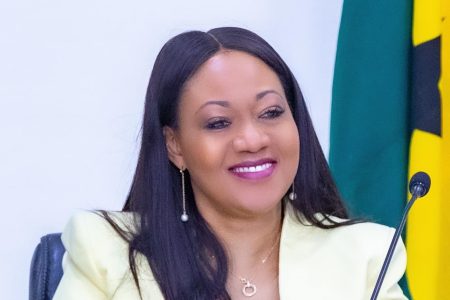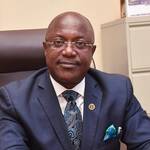About 66, 200 persons are contesting 37,290 positions as Assembly and Unit Committee members in District Level Elections across the country.
The Electoral Commission (EC) fixed tomorrow, December 19, 2023, for the District Level Elections in all districts across the country, except the Nkoranza North and Nkoranza South in the Bono East Region.
Voters will elect assembly members and unit committee members for the next four years.
6,215 electoral areas
Data published by the EC shows that the District Level Elections will be held in 6,215 electoral areas.
18,750 vie for 6,215 Assembly Member positions
The elections will see a staggering 18,750 candidates vying for the position of Assembly Member, with voters having the opportunity to elect 6,215 Assembly Members.
This leaves 12,535 candidates without a chance of becoming Assembly members.
In these elections, each voter will cast their ballot for one Assembly member and five Unit Committee members.
The elected assembly members will serve as representatives of their respective communities, addressing local concerns and participating in the decision-making processes at the district level.
47,500 vie for 31,075 Unit Committee positions
Similarly, for the Unit Committee Member positions, there are a total of 47,500 candidates, but only 31,075 will be elected by voters.
This means that 16,425 candidates will not secure a position as Unit Committee members.
Unit committee members, on the other hand, play a crucial role in community mobilization.
Assembly elections, a stepping stone
Serving as an Assembly member has been a stepping stone for several prominent figures in Ghana, providing a platform for them to contribute at the grassroots level before ascending to higher political offices.
The current President of Ghana started his political career as an assembly member in the Akyem Abuakwa constituency.
His journey from a local representative to the presidency showcases the significance of grassroots involvement in shaping national leadership.
Former President of Ghana, John Dramani Mahama, also began his political career as an assembly member for the Bole-Bamboi constituency. His experience at the grassroots level laid the foundation for his subsequent roles in national leadership.
The Speaker of Parliament, Alban Bagbin, started his political journey as a unit committee member.
His commitment to public service and community representation eventually propelled him to become a significant figure in the country’s political landscape.
A veteran politician, Kwesi Ahwoi, served in various capacities, including district assembly member before rising to various ministerial positions in government.
His grassroots engagement allowed him to understand the needs of the local population, influencing his policymaking at higher levels.
Samuel Ofosu-Ampofo, immediate past national Chairman of NDC, began his political career as a unit committee member and rose to become a minister.
His dedication and contributions at the community level paved the way for his advancement to higher political positions.
These individuals exemplify the importance of local representation and community service in Ghana’s political landscape.
Starting as Assembly members or unit committee members, they have demonstrated the impact of grassroots involvement on shaping national policies and leadership.
Regional breakdown
The Ashanti Region holds the highest number of candidates, with a total of 3,794 contestants vying for the Assembly member position, whiles 9,314 candidates are contesting the Unit Committee Election.
In the Greater Accra Region, 1,340 candidates are contesting Assembly Elections while 4,607 candidates are contesting the Unit Committee Election.
The figure reduces drastically in the Savannah Region, where 397 persons are contesting the Assembly Election, with 860 persons vying for unit committee membership.
In the Oti Region, 628 persons are contesting the Assembly Election while 1,236 are contesting the Unit Committee Election.
In the Western Region, 11,197 candidates are contesting Assembly Elections while 3,599 candidates are contesting the Unit Committee Election.
In the Central Region, 1,634 persons are contesting the Assembly Election while 4,440 are contesting the Unit Committee Election.
Meanwhile in the Eastern Region, 1340 candidates are contesting Assembly Elections while 4,607 candidates are contesting the Unit Committee Election.
In the Western North, 575 candidates are contesting Assembly Elections while 1,718 candidates are contesting the Unit Committee Election.
In the Bono Region, 877 candidates are contesting Assembly Elections while 2123 candidates are contesting the Unit Committee Election.
In the Bono East Region, 664 candidates are contesting Assembly Elections while 1,902 candidates are contesting the Unit Committee Election.
In the Northern Region, 1,074 candidates are contesting Assembly Elections while 2028 candidates are contesting the Unit Committee Election.
In the Upper West Region, 730 persons are contesting the Assembly Election while 1897 are contesting the Unit Committee Election.
In the North East Region, 373 candidates are contesting Assembly Elections while 648 candidates are contesting the Unit Committee Election.
In the Upper East Region, 939 persons are contesting the Assembly Election while 1,946 are contesting the Unit Committee Election.
- Hearts, Kotoko share the spoils in cagey super clash - 4 May 2025
- Edmond Kombat elevated to acting MD of TOR - 4 May 2025
- Mahama swears in 2nd Deputy BoG Governor - 4 May 2025

